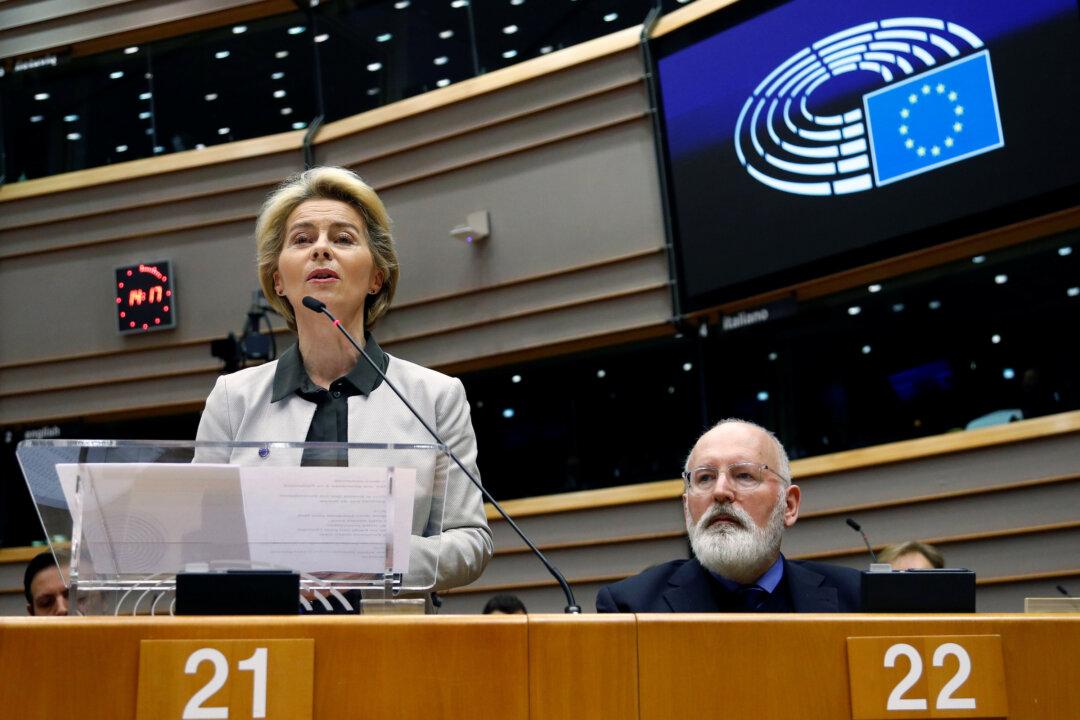The European Union’s new executive is set to face opposition to its new “hallmark” Green Deal from fossil fuel reliant eastern Europe, as the newly anointed European Commission President Ursula von der Leyen lays out bold aims for climate neutrality by 2050.
Von der Leyen presented her Green Deal on Wednesday in Brussels, Belgium, calling the official launch of the series of radical policy shifts “Europe’s man on the moon moment.”





